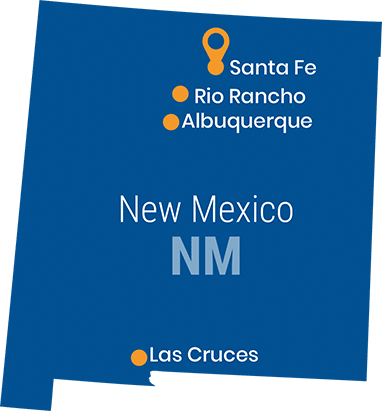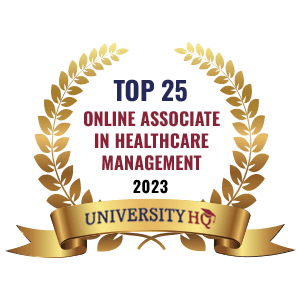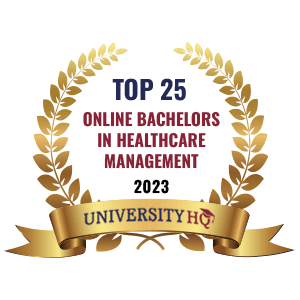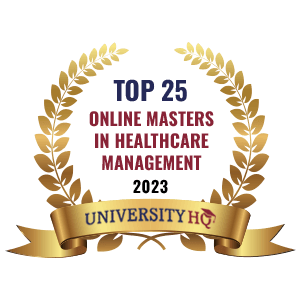What is Healthcare Management?
A healthcare manager is a vital role in the healthcare industry. They are responsible for overseeing the operations of a healthcare facility or department and ensuring that everything runs smoothly. If you have a passion for healthcare and a desire to make a difference in the industry without engaging in direct patient care, then a career as a healthcare manager might be the right path for you.
Healthcare managers work in hospitals, clinics, nursing homes, and other healthcare facilities across a range of settings - hospitals, clinics, nursing homes, and more - where they are responsible for overseeing administrative tasks, finances, and personnel within a facility - including hiring/training employees as needed, creating budgets to maintain regulatory compliance, and implementing policies and procedures.
One of the main roles of a healthcare manager is to ensure that patient care is of the highest quality. They work closely with healthcare providers and staff to develop and implement strategies that improve patient outcomes and satisfaction. This can include implementing new technology, improving processes, and ensuring that the facility is providing the best possible care to its patients.
Healthcare managers play an essential role in strategic planning and decision-making at healthcare facilities. They use data analysis and trends analysis to identify areas for improvement while developing plans to achieve organizational goals. Healthcare managers also collaborate closely with other leaders within healthcare to devise policies and initiatives designed to enhance healthcare service provision overall.

Featured Online Programs
Online Healthcare Management Education in New Mexico
New Mexico is a state known for its diverse and vibrant healthcare industry. As the population continues to grow, so does the demand for quality healthcare services. This has led to an increased need for healthcare managers who can effectively oversee and manage healthcare facilities and organizations.
Health administration is an essential aspect of the healthcare industry, encompassing numerous responsibilities such as strategic planning, budgeting, personnel administration, and regulatory compliance. If you are interested in healthcare and enjoy business, pursuing a career in healthcare management could prove rewarding and satisfying.
According to the US Bureau of Labor Statistics (BLS), as of May 2020, there were approximately 1,780 healthcare managers employed in New Mexico. These professionals earned a median annual wage of $97,100. The top 10% of earners made over $153,670, while the bottom 10% earned less than $58,880. And New Mexico healthcare managers are projected to experience strong employment growth over the coming years. Factors like an aging population and advancements in medical technology contribute to an increasing need for healthcare services; thus, necessitating skilled managers who can oversee and optimize healthcare operations.
This means that pursuing a career in health administration in New Mexico can offer a promising future. By obtaining the necessary education, gaining practical experience, and pursuing professional certifications, you can position yourself for success in this dynamic and essential field. With the healthcare industry continuously evolving, healthcare managers play a crucial role in ensuring the delivery of quality healthcare services to the residents of New Mexico.
Online Associates (AS)

Health administration is a rapidly growing field that requires skilled professionals to oversee and manage healthcare facilities and organizations. With the increasing demand for effective healthcare services, there is a need for individuals who are well-versed in both healthcare practices and business principles. This has led to the rise of associate degree programs in healthcare administration offered by various colleges.
These associate degree programs in health administration provide students with the necessary knowledge and skills to effectively manage healthcare facilities such as hospitals, clinics, nursing homes, and private practices. The curriculum typically includes courses in healthcare administration, human resources management, financial management, legal issues in healthcare, healthcare policy analysis, and strategic planning. Students also gain practical experience through internships or practicum opportunities.
Graduates of an associate degree program in healthcare management can pursue a variety of career options within the industry. They may work as medical office managers, health information managers, or assistant administrators in hospitals or other healthcare facilities. They may also find employment opportunities in insurance companies or pharmaceutical firms. Additionally, this degree can serve as a steppingstone for those who wish to further their education by pursuing a bachelor's or master's degree in healthcare administration or related fields.
Online Bachelors (BS)

Healthcare administration is a rapidly growing field that offers numerous career opportunities for individuals interested in the healthcare industry but who prefer working in a managerial or administrative role. To pursue a career as a healthcare manager, obtaining a bachelor's degree in health administration can be highly beneficial. Several colleges and universities offer specialized degree programs that provide students with the necessary knowledge and skills to excel in this field.
A bachelor's degree in healthcare management typically covers various aspects of the healthcare industry including policies and regulations, financial management, ethics, leadership, and strategic planning. Students learn about the intricacies of managing healthcare organizations efficiently while ensuring high-quality patient care. The curriculum may also include courses on information technology systems used in healthcare settings, marketing strategies for medical services, and human resources management.
By completing a bachelor's degree program in health administration, graduates gain comprehensive knowledge of the unique challenges faced by healthcare organizations today. They develop crucial skills such as critical thinking, problem-solving, decision-making, and effective communication – all essential for success in managerial positions within the industry. Furthermore, many programs offer internship opportunities or practical experiences that allow students to apply their theoretical knowledge and gain hands-on experience working within real-world healthcare settings. Overall, earning a bachelor's degree in healthcare management provides individuals with an excellent foundation to pursue fulfilling careers as leaders or administrators within the dynamic field of healthcare.
Find Your Online Healthcare Management Program
Online Masters (MS)

Health administration is a rapidly growing field that requires professionals with specialized knowledge and skills to effectively navigate the complex healthcare industry. Pursuing a master's degree in healthcare management can provide individuals with the necessary education and training to excel in this challenging yet rewarding career path. Many colleges and universities offer comprehensive degree programs that cover various aspects of health administration including healthcare policy and regulations, financial management, strategic planning, quality improvement, and leadership development.
In these degree programs, students are typically exposed to a curriculum that combines business principles with an understanding of the unique challenges and dynamics of the healthcare sector. They may learn about topics such as healthcare economics, health informatics, human resources management, ethics in healthcare administration, and organizational behavior. The coursework often includes case studies, group projects, internships, and even practicums to help students apply their learning in real-world settings.
Earning a master's degree in healthcare management can open up numerous career opportunities for individuals looking to make a meaningful impact on the delivery of quality care. Graduates may find employment in hospitals, clinics, insurance companies, pharmaceutical companies, government agencies, or consulting firms. With strong job prospects and competitive salaries within the industry, pursuing a master's degree in health administration can be a valuable investment for those passionate about improving the efficiency and effectiveness of our healthcare system.
Online Doctorate (PhD)
Healthcare management is a rapidly growing field that requires professionals with advanced knowledge and skills to navigate the complex healthcare industry. As a result, many colleges and universities now offer specialized degree programs, including PhDs in health systems management. These advanced degrees are designed for individuals who aspire to leadership positions in healthcare organizations or want to pursue careers in academia, such as in healthcare management education or community health education.
A PhD in healthcare management provides students with a deep understanding of the healthcare system including its policies, regulations, and financial aspects. Coursework typically covers topics such as strategic planning, quality improvement, healthcare finance, health information technology, health systems, public health and public administration, healthcare ethics, and leadership development. In addition to coursework, students are required to complete original research in their area of interest and defend their dissertation before earning their doctoral degree, which is what sets a PhD apart from any other advanced degree.
Earning a PhD in this field can prepare you for numerous career opportunities. They may work as executives or administrators in hospitals, clinics, nursing homes, or other healthcare organizations. Some may choose to enter academia and become professors or researchers at universities or think tanks focused on healthcare policy. With the increasing demand for qualified leaders in the ever-evolving healthcare industry, obtaining a PhD can be an excellent investment for those seeking long-term career success.
Online Certifications
Healthcare management certifications hold immense value in the healthcare industry. These specialized credentials provide professionals with the necessary skills and knowledge to effectively manage healthcare organizations and contribute to their success. Healthcare management certifications ensure that professionals are equipped with the right expertise and can be supported by college programs or earned outside the rest of your education.
Many programs focused on certifications provide a comprehensive curriculum that covers various aspects of healthcare management. Students gain insights into topics such as healthcare policy, financial management, human resources, marketing, strategic planning, or whatever else the certification is focused on. By completing coursework and taking exams, individuals acquire essential skills that are vital for successful healthcare managers, and they gain the certification to prove that they are capable.
Moreover, healthcare management certifications can offer flexible learning options to cater to diverse needs. Some provide traditional classroom settings, while others focus on online learning. This allows individuals from different backgrounds or those who are already working in the field to pursue certification without disrupting their current commitments. Overall, healthcare management certifications enable individuals to enhance their professional competence and keep up with industry trends and best practices. These credentials not only boost career prospects but also contribute toward improving the overall quality of patient care provided by healthcare organizations.
Become a Healthcare Manager in New Mexico
Healthcare managers play a crucial role in healthcare organizations, overseeing operations, managing staff, and ensuring quality patient care. If you're interested in becoming a healthcare manager in New Mexico, here are some steps to guide you on your career path.
-
Step 1: Obtain a Bachelor's Degree:
The first step toward becoming a healthcare manager is to earn a bachelor's degree in healthcare administration, health services management, or a related field. Many universities and colleges in New Mexico offer programs specifically tailored to healthcare management. These programs provide a solid foundation in healthcare policy, finance, human resources, and leadership.
-
Step 2: Gain Relevant Work Experience:
While obtaining a degree is important, practical experience in the healthcare industry is equally essential. You will gain experience when you start working in entry-level positions in healthcare organizations such as hospitals, clinics, or nursing homes – which will help you understand the inner workings of healthcare operations and provide you with valuable insights into the field. However, you may also want to keep an eye open for programs that offer internships or volunteer opportunities where you can get a head start on gaining pertinent experience.
-
Step 3: Pursue a Master's Degree
Although a master's degree is not always required, it can give you a competitive edge in the job market and open up higher-level management positions. If you’re interested, you’ll want to consider pursuing a Master of Healthcare Administration (MHA) or a Master of Business Administration (MBA) with a specialization in healthcare management. These advanced healthcare management degrees provide advanced knowledge and skills in areas such as healthcare policy, strategic planning, and financial management.
-
Step 4: Obtain Professional Certification
While not mandatory, obtaining professional certification can provide additional credibility and demonstrate your commitment to the field. The American College of Healthcare Executives (ACHE) offers the Certified Healthcare Executive (CHE) certification, which requires a combination of education, work experience, and passing an examination. Additionally, the Professional Association of Health Care Office Management (PAHCOM) offers the Certified Medical Manager (CMM) credential, specifically for healthcare managers.
-
Step 5: Network and Stay Updated
Networking is crucial in any field, including healthcare management. You can attend industry conferences, join professional organizations to connect with other healthcare professionals in New Mexico. This will not only expand your professional network but also keep you updated on the latest trends, regulations, and best practices in healthcare management.
Find Online Healthcare Management Programs
What Can I Do with a Bachelor's in Healthcare Management?
Healthcare management is a dynamic field that offers a wide range of career opportunities for graduates with a bachelor's degree in the discipline. With this degree, individuals can pursue various roles within healthcare organizations such as hospital administrators, healthcare consultants, and medical practice managers. Hospital administrators are responsible for overseeing the daily operations of healthcare facilities, managing budgets and resources, and ensuring compliance with regulations. Healthcare consultants work with organizations to improve efficiency and quality of care through data analysis and strategic planning. Medical practice managers handle business aspects of healthcare practices including billing, scheduling, and personnel management.
Moreover, graduates can also explore careers in health information management or health policy analysis. Health information managers play a crucial role in maintaining patient records securely while ensuring their accessibility to authorized personnel. They also implement electronic health record systems and ensure compliance with privacy laws. On the other hand, health policy analysts assess current policies' impact on public health outcomes and propose improvements based on extensive research and analysis.
Overall, obtaining a bachelor's degree in healthcare management can prepare you for numerous career paths within the ever-expanding field of healthcare administration.
Potential Careers for Healthcare Management Graduates
- Rehabilitation Manager:
Rehabilitation managers oversee and direct rehabilitation programs at healthcare facilities or organizations and work in developing, implementing, and assessing rehabilitation services tailored to meet patients' needs. Working closely with other healthcare professionals ensures high-quality patient care with optimal patient outcomes.
Necessary Requirements:
- Bachelor's degree in Rehabilitation Sciences or related field (Master's degree preferred)
Estimated Salary
- The median annual wage for rehabilitation counselors in the US in 2021 was $38,560, though those who work as managers for rehab facilities will likely make more than counselors.
- The mean annual wage for rehabilitation counselors in New Mexico is $42,470
- Business Administrative Coordinator:
Administrative coordinators are accountable for providing administrative support and overseeing various tasks to ensure the smooth running of an office. Their duties may include overseeing daily operations, keeping records up to date, handling general office duties, and more.
Necessary Requirements:
- High school diploma or equivalent qualification; additional certification in office administration is a plus
- Proven experience as an administrative coordinator or similar role
Estimated Salary
- The mean annual wage for administrative service managers in the US in 2021 was $115,640
- The mean annual wage for administrative service managers in New Mexico is $106,940
- Healthcare Admin Consultant:
Healthcare consultants provide advisory and consulting services to healthcare organizations. They assess an organization's operations, identify areas for improvement, and devise strategies to increase efficiency and effectiveness. Furthermore, healthcare consultants work closely with their clients to understand their individual needs and challenges and offer expert guidance to create positive change within an organization.
Necessary Requirements:
- Bachelor's degree in healthcare administration, business administration, or a related field
- A master's degree is preferred
- Proven experience working in the healthcare industry, preferably in a consulting or advisory role
Estimated Salary
- The median annual wage for medical and health services managers in the US in 2021 was $101,340
- The mean annual wage for medical and health services managers in New Mexico is $126,690
- Chief Executive Officer:
A chief executive officer (CEO) is the highest-ranking executive within an organization and is accountable for leading it and making strategic decisions to meet its goals. Reporting directly to the Board of Directors, they ensure the organization operates in line with its mission, vision, and values.
Necessary Requirements:
- Proven track record of successful leadership as a CEO or in a similar executive role
- Extensive experience in strategic planning and execution
Estimated Salary
- The mean annual wage for chief executives in the US in 2021 was $246,440
- No available mean annual wage for chief executives in New Mexico, though general and operations managers earn $116,340
- Nursing Home Administrator:
As a nursing home administrator, your role will involve overseeing the overall operations and management of a nursing home facility. You must ensure that it runs efficiently while offering high-quality care to residents while adhering to all relevant regulations and standards.
Necessary Requirements:
- Bachelor's or master's degree in healthcare administration or a related field
- Valid nursing home administrator
Estimated Salary
- The median annual wage for medical and health services managers in the US in 2021 was $101,340
- The mean annual wage for medical and health services managers in New Mexico is $126,690
- Healthcare Administrator Consultant:
As a healthcare administrator consultant, your duties will involve offering advice and guidance regarding healthcare administration practices to healthcare organizations. As part of this role, you may assess current administrative processes to identify areas for improvement and develop strategies for optimizing efficiency and effectiveness. This position requires strong knowledge of healthcare regulations, policies, procedures, and excellent problem-solving and communication abilities.
Necessary Requirements:
- Bachelor's degree in Healthcare Administration or a related field (Master's degree preferred)
Estimated Salary
- The median annual wage for medical and health services managers in the US in 2021 was $101,340
- The mean annual wage for medical and health services managers in New Mexico is $126,690
- Healthcare Risk Manager:
A healthcare risk manager is responsible for overseeing and implementing risk management programs within a healthcare facility. They analyze potential risks and develop strategies to minimize them - ensuring the safety of patients, staff, and the whole organization. Additionally, they collaborate with various departments to assess the effectiveness of current risk prevention measures and make recommendations for improvement.
Necessary Requirements:
- Bachelor's degree in healthcare administration, nursing, or a related field (Master's degree preferred)
- Previous experience in healthcare risk management or a related role
- In-depth knowledge of healthcare laws, regulations, and accreditation
Estimated Salary
- The mean annual wage for financial risk specialists in the US in 2021 was $116,140
- The mean annual wage for financial risk specialists in New Mexico is $82,220
- Healthcare Informatics Manager:
A health information manager is responsible for overseeing the management and security of health information systems within a healthcare facility. They ensure that all patient records are accurately maintained in compliance with applicable laws and regulations. They also collaborate with other healthcare professionals to improve the quality and efficiency of healthcare delivery.
Necessary Requirements:
- Bachelor's degree in Health Information Management or related field
- Certification as a Registered Health Information Administrator (RHIA) or Registered Health Information Technician (RHIT)
- Strong knowledge of HIPAA regulations
Estimated Salary
- The median annual wage for health information technologists in the US in 2021 was $65,280, though managers in this field may make closer to the income of medical and health services managers ($101,340)
- The mean annual wage for health information technologists in New Mexico is $46,010, though managers in this field may make closer to the income of medical and health services managers ($126,690)
Search All Programs
